
US President Donald Trump ramped back up his tariff plans with an eye on copper and Canada, deflating hopes that the administration was dialing back its initial Liberation Day levies first announced in April.
Trump said that US imports of copper — a vital component in power networks, plumbing and industrial machinery — will face a 50% duty from Aug. 1. He also threatened a 35% tariff on some Canadian goods and raised the prospect of increasing levies on most other countries, following threats to impose a 50% tariff on Brazil over its domestic political affairs.
On Thursday, Trump told NBC News he's eying blanket tariffs of 15% to 20% on most trading partners who haven't been informed yet of their rates. The current global baseline minimum levy for nearly all US trading partners is 10%.
Here are some of the charts that appeared on Bloomberg this week on the latest developments in the global economy, markets and geopolitics:
World
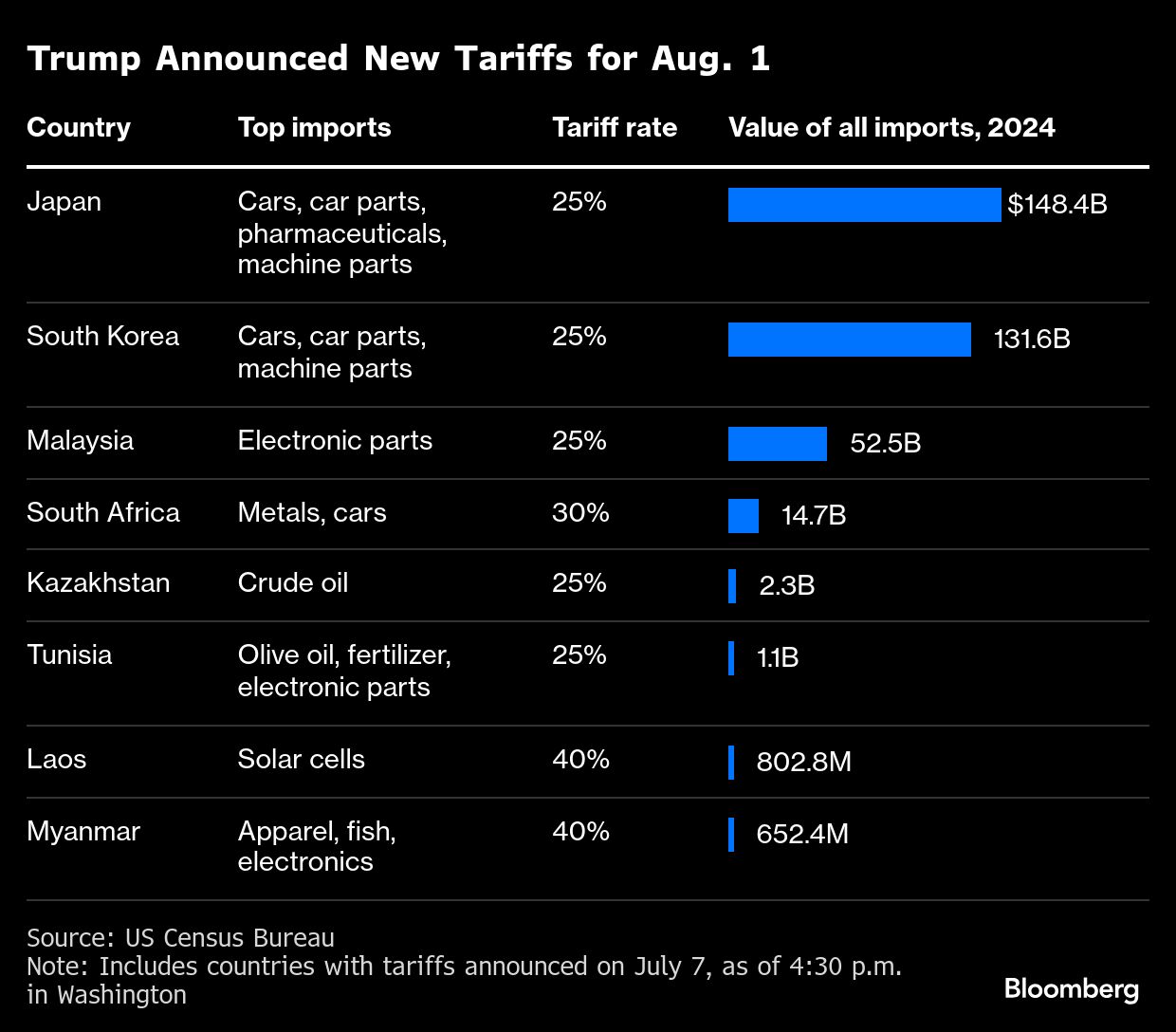
Trump unveiled a wave of letters again threatening key trading partners with high tariff rates even as he delayed the increased duties until Aug. 1 and suggested that he was still open to negotiations. Still, the US president said the Aug. 1 deadline was “not 100% firm” and signaled he might tweak the rates further.
The Reserve Bank of Australia shocked markets this week by keeping interest rates on hold at 3.85%, despite widespread expectations for a third cut in five months. Central bankers in Israel, Romania, New Zealand, Peru, Egypt, Serbia and Kazakhstan also kept interest rates unchanged. Uruguay surprised with a quarter-point rate cut, while Malaysia lowered borrowing costs for the first time since 2020.
Emerging Markets
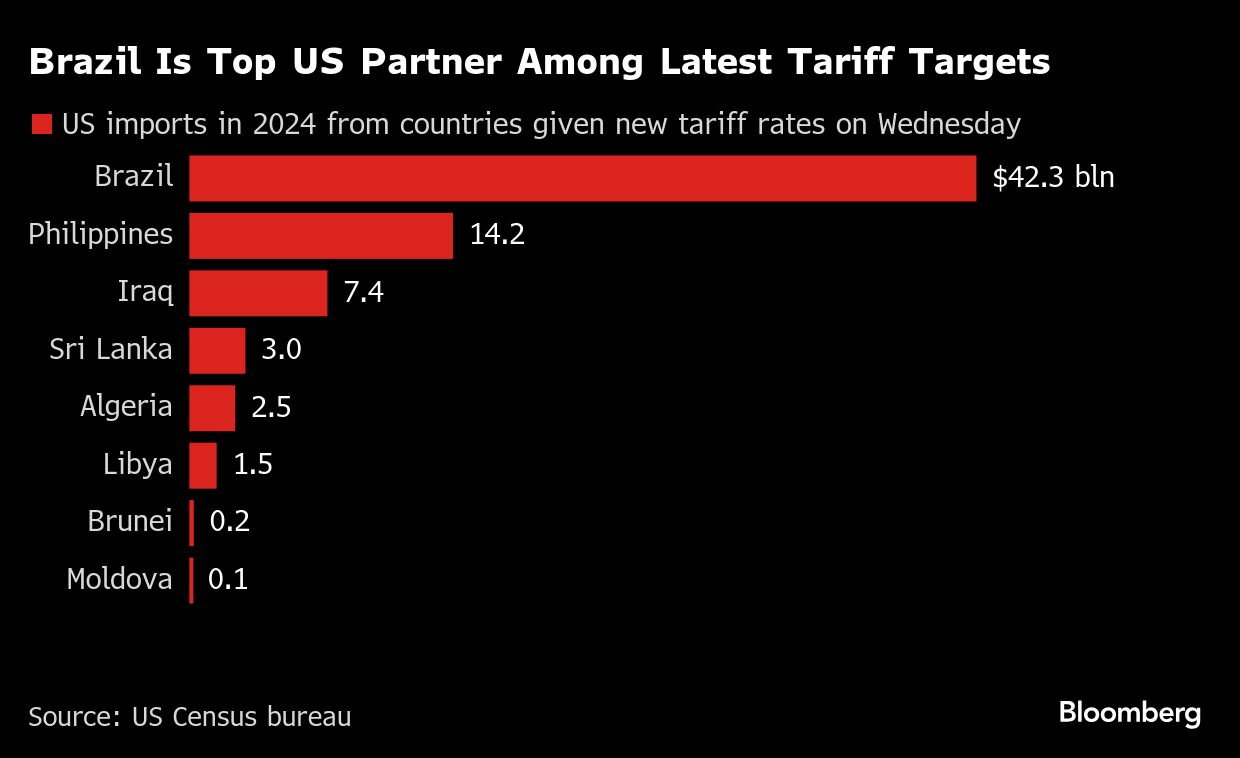
Trump threatened to impose a 50% tariff on Brazil over its domestic political affairs, the most extreme case yet of the US president weaponizing trade policy to make unrelated demands. Trump's latest threat, against a nation that sells fewer goods to the US than it buys, risks reinforcing concerns that formal trade agreements may offer limited protection against future tariff hikes.
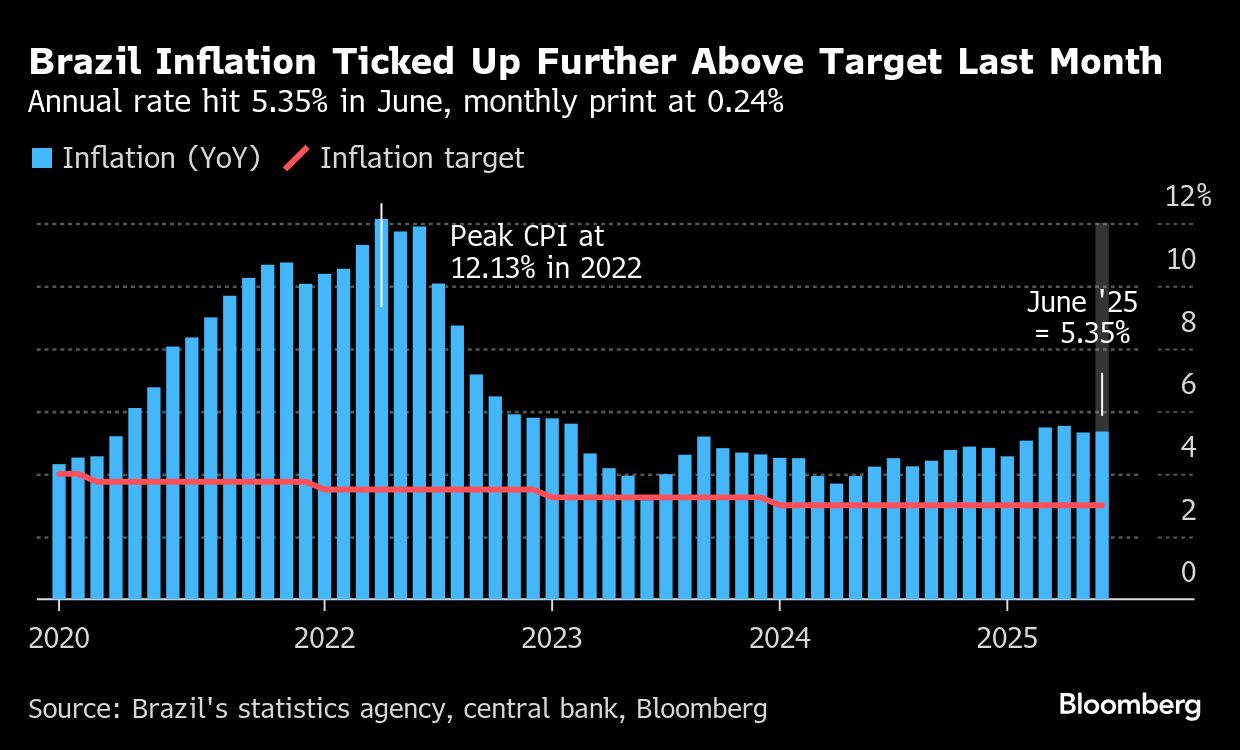
Brazil's annual inflation ticked up further above target, a signal of the long road ahead before the central bank can begin easing sky-high interest rates.
US
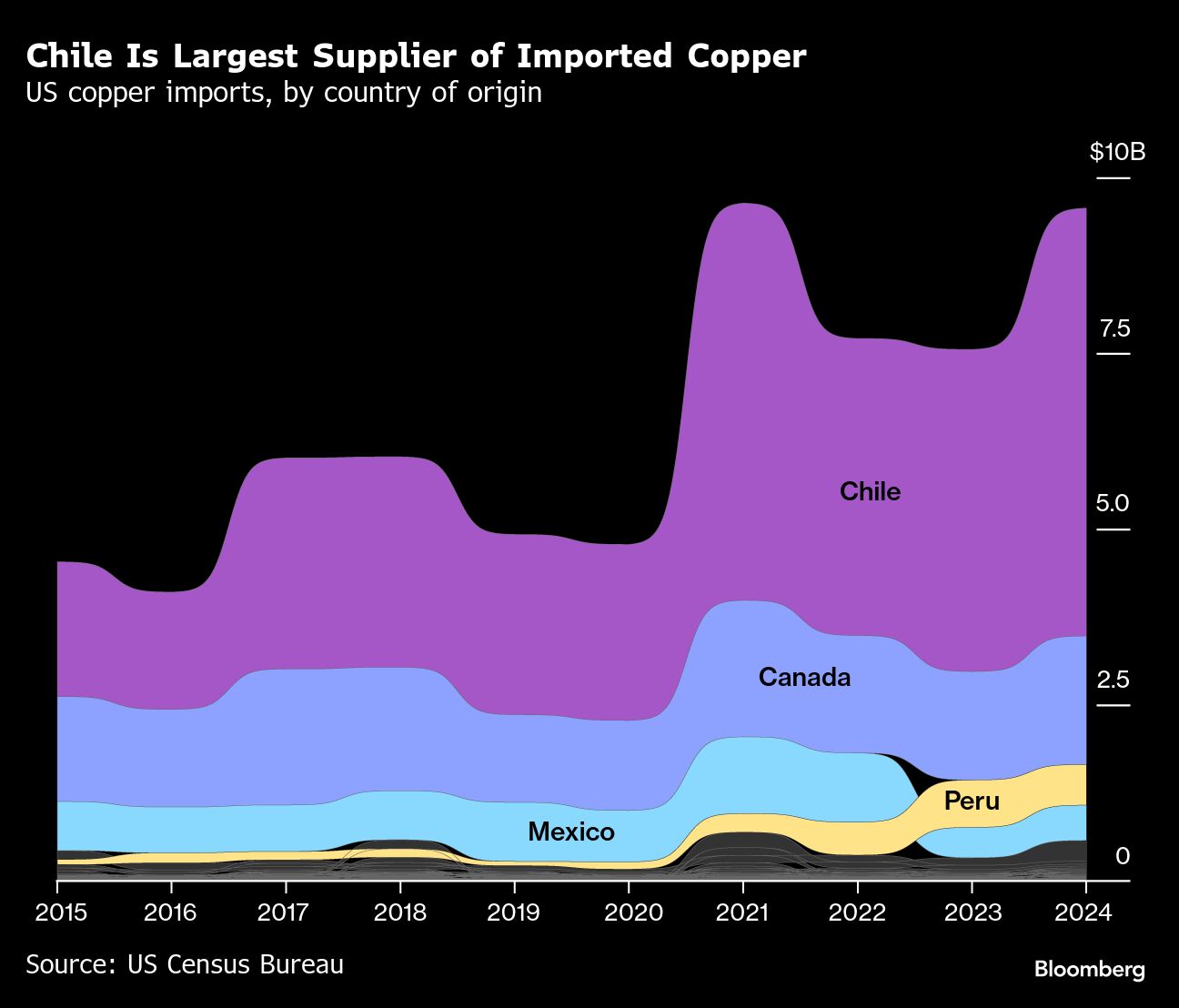
US buyers of copper will pay a high price if President Donald Trump pushes ahead with a 50% tariff on refined metal as opposed to products such as wiring, according to producers and analysts. As Trump prepares to slap a 50% levy on imported copper as of Aug. 1, the global supply chain is sweating on details of the measure.
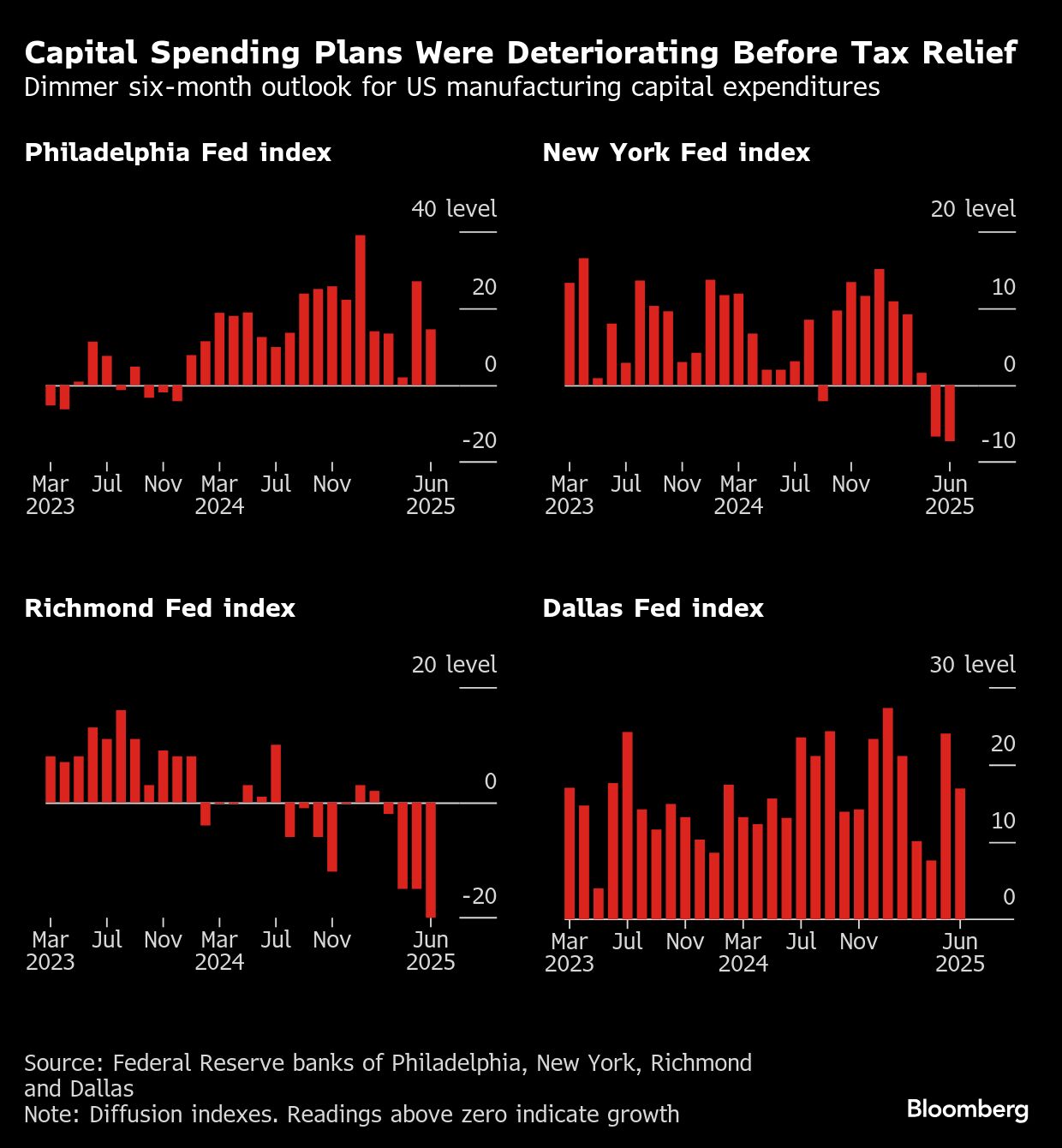
US manufacturers secured the business tax provisions they'd hoped for in Trump's budget megabill, but the president's erratic trade policy risks tempering any pronounced pickup in capital investment. Still, some expect any notable upturn in capital expenditures to take longer to evolve because of the administration's frenetic tariff announcements as well as the levies themselves.
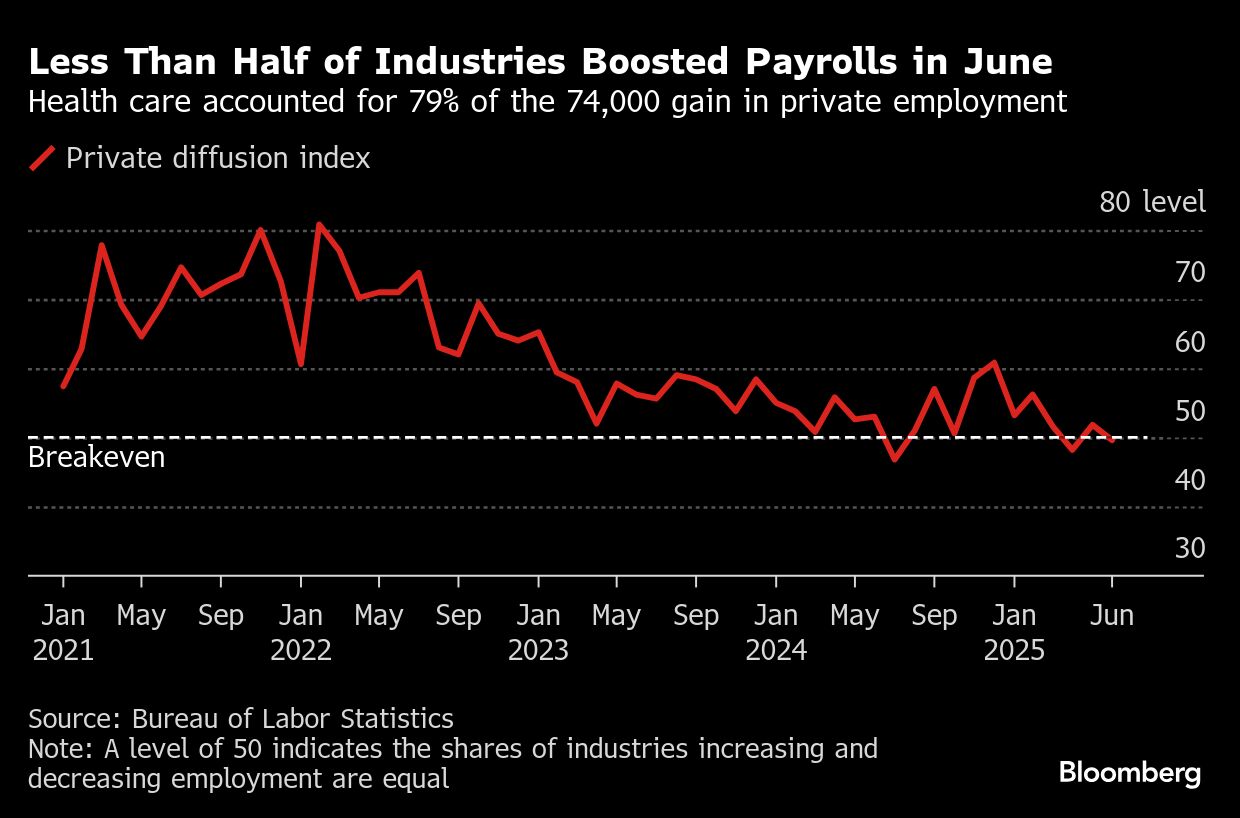
An assortment of cautionary signals emerged in the latest US jobs report, including weak and concentrated hiring in the private sector as well as a dip in hours worked that underscore a fragile job market. Private payrolls rose 74,000 last month, about half as much as in May. The health care and social assistance industry accounted for nearly 80% of all private sector job growth in June. Excluding that advance, companies added roughly 15,000 jobs — the least in eight months.
Europe
European Central Bank Executive Board member Isabel Schnabel said there'd have to be a major downward shift in inflation to justify another reduction in borrowing costs, dismissing concern that the economy is struggling.
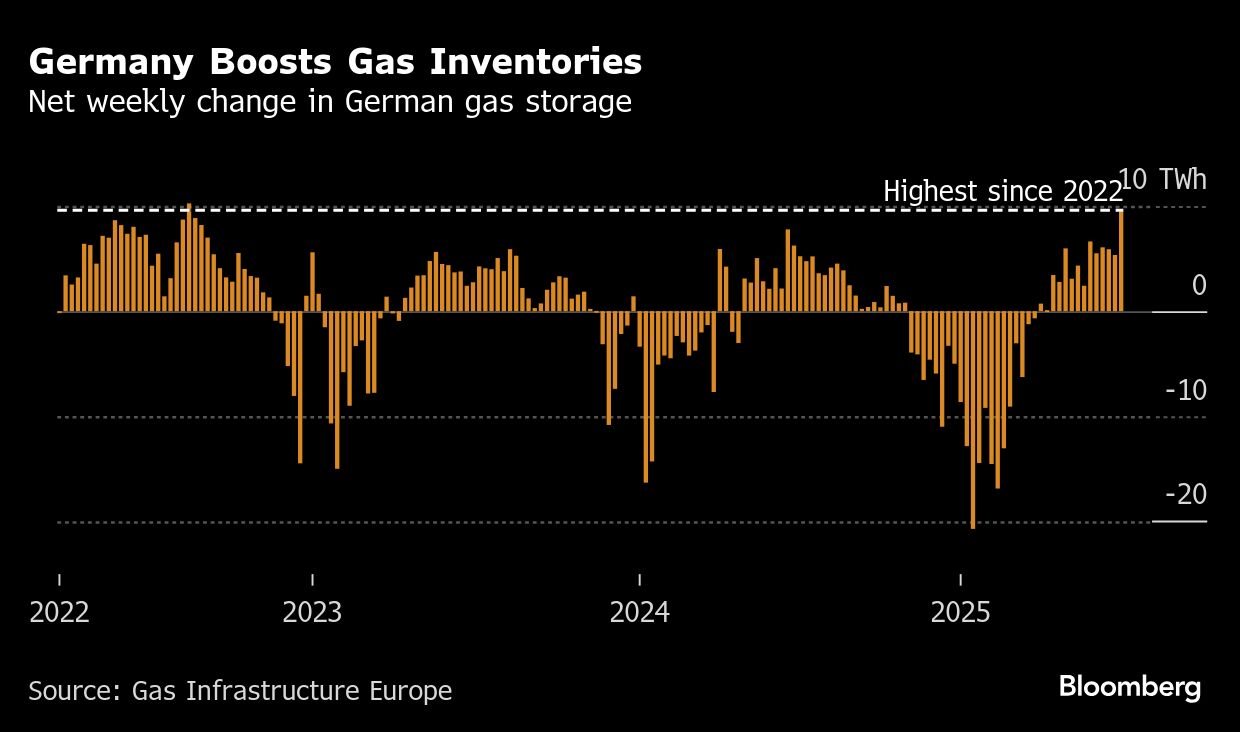
The UK economy shrank for a second straight month as companies and consumers struggled to bounce back from the blow dealt by US tariffs and a raft of tax increases. Gross domestic product declined 0.1% in May after contracting 0.3% the previous month.
Traders have ramped up bookings at German natural gas storage sites, marking a sharp turnaround from earlier this year when the country exited winter with stockpiles at a three-year low and an unusual market structure made refills unprofitable.
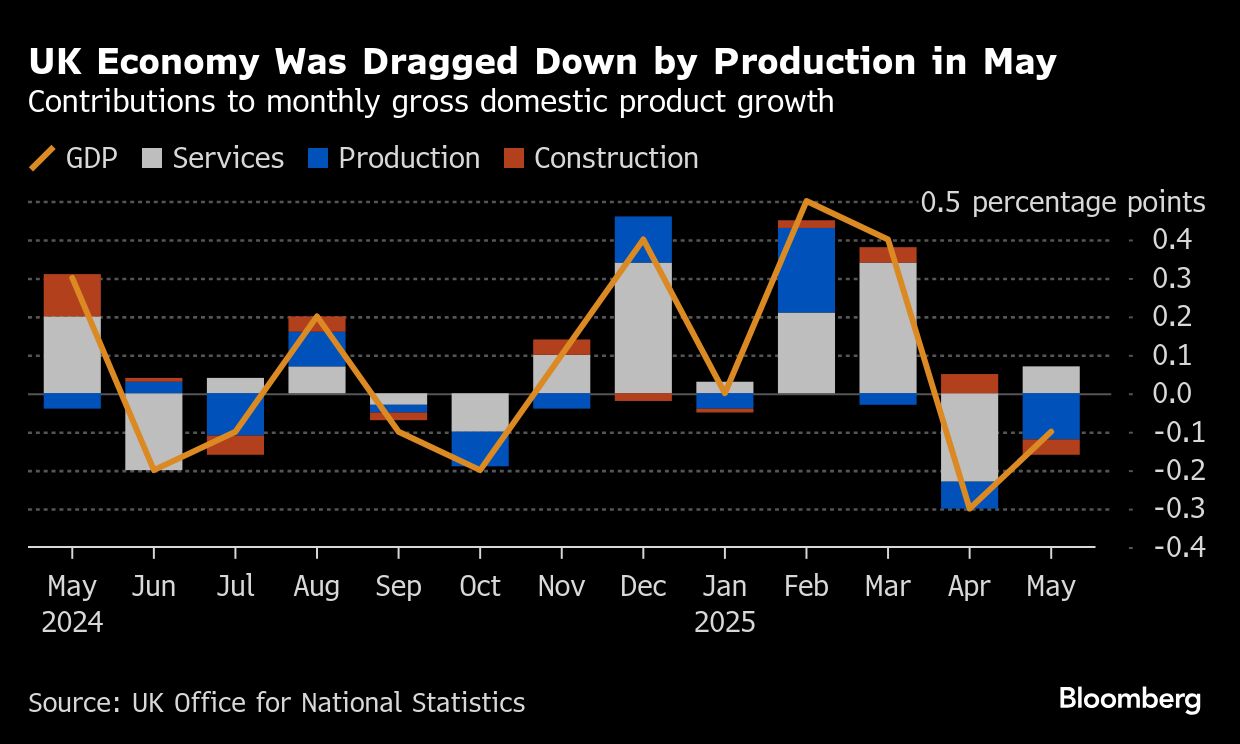
Asia
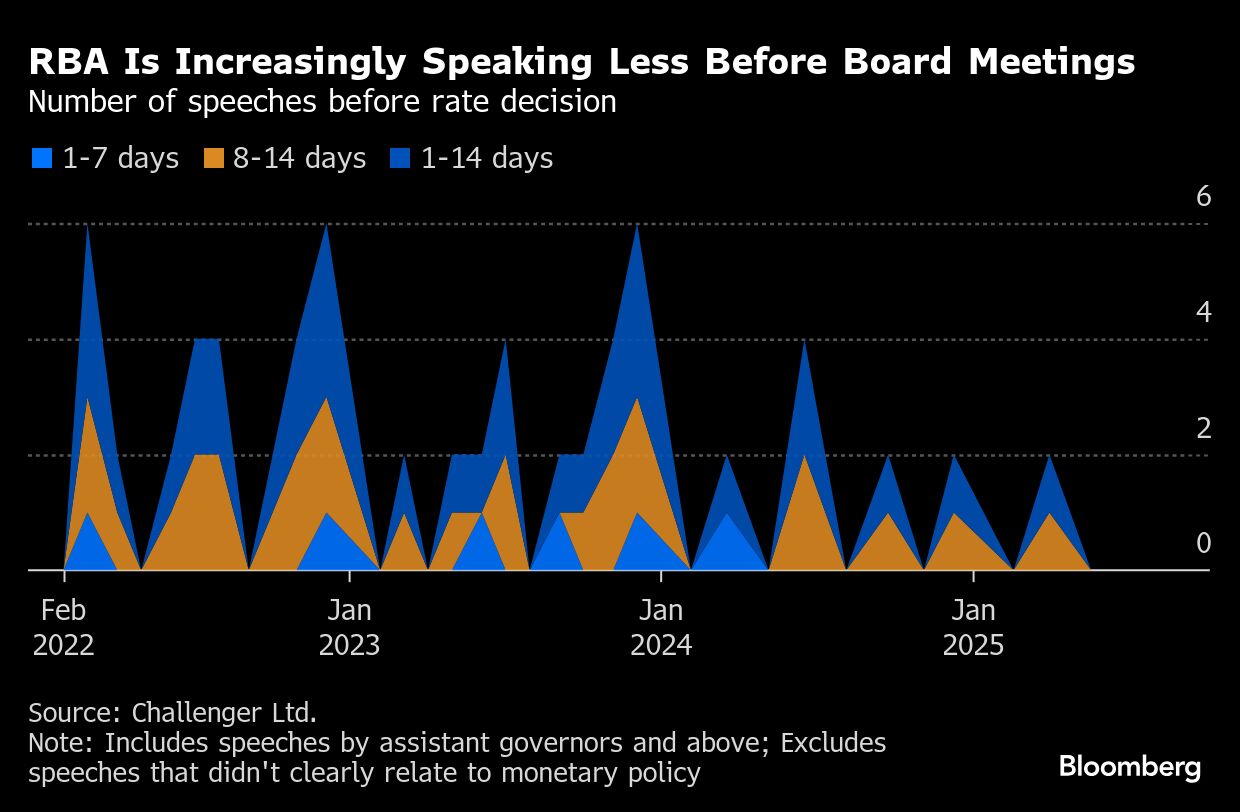
Weeks leading up to the Australian central bank interest rate decision Tuesday, policymakers sat silent as hot wars in the Middle East and trade wars from the US shook global confidence. That turmoil, along with local data skewed largely to the downside, boosted expectations for a rate cut. So when the bank stunned with a decision to keep rates unchanged, it caught just about everyone wrong-footed.
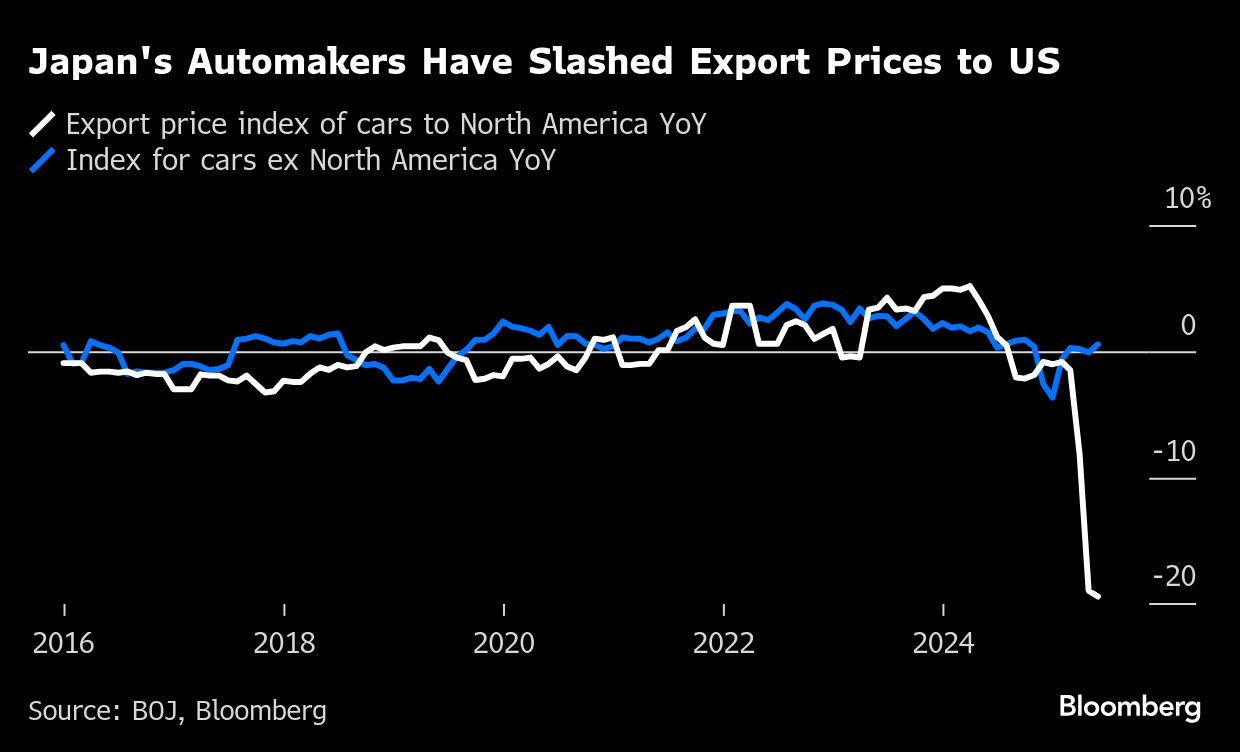
Japan's automakers slashed the price of products exported to the US at a record pace, in a sign that companies are sacrificing profits to remain competitive as Trump's tariffs hit cars. Last month the export price index for vehicles shipped to North America plunged 19.4% from a year earlier on a contract currency basis, the biggest drop in records going back to 2016.
Essential Business Intelligence, Continuous LIVE TV, Sharp Market Insights, Practical Personal Finance Advice and Latest Stories — On NDTV Profit.























